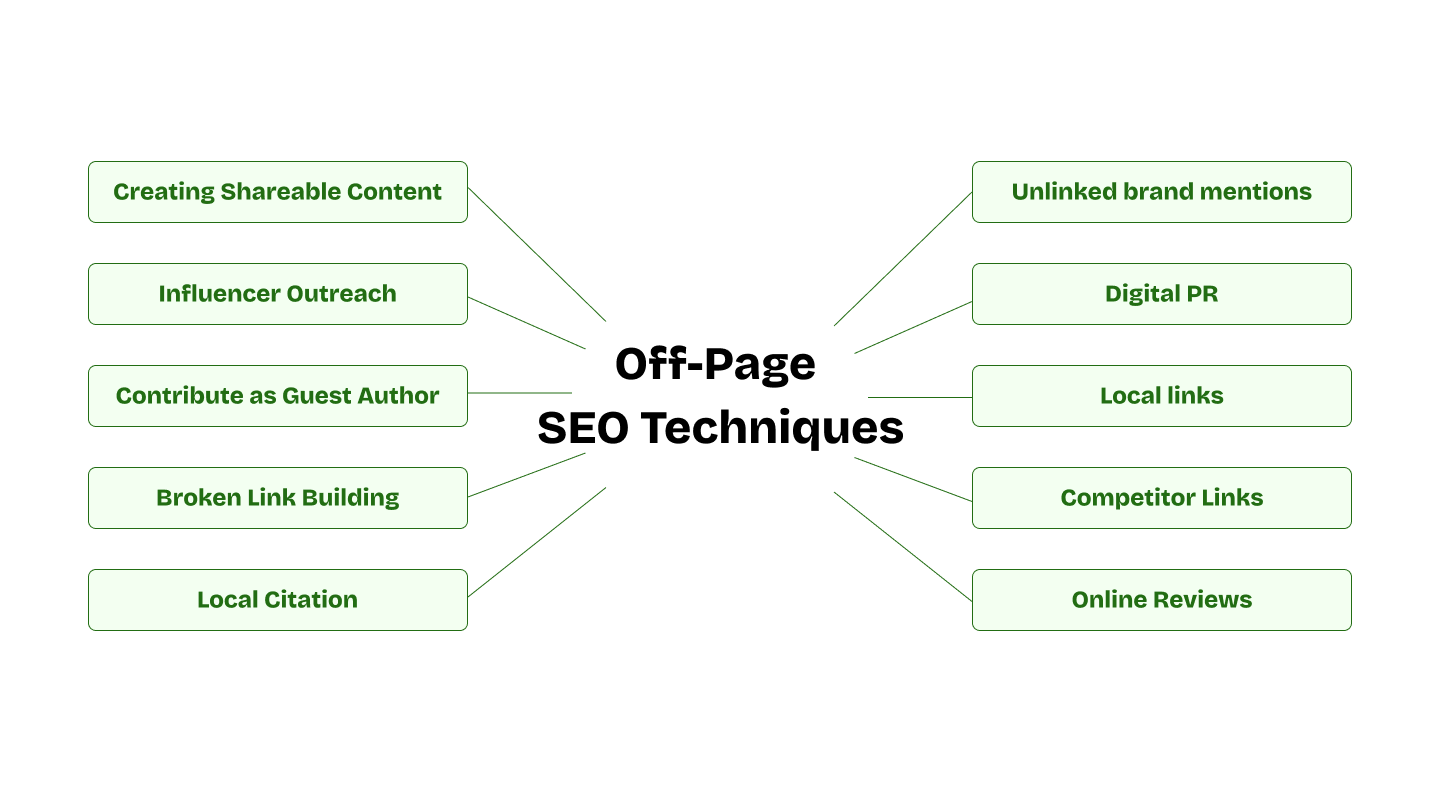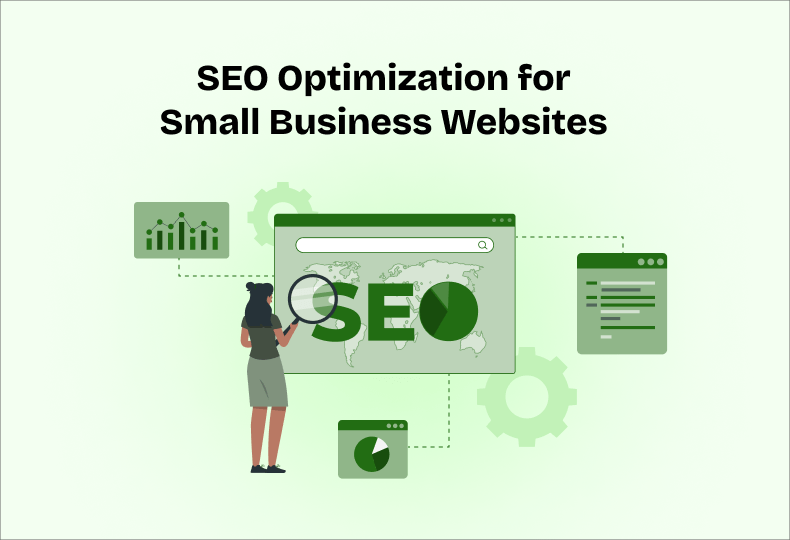In today’s digital landscape, SEO optimization for small business is crucial for establishing a strong online presence. This comprehensive guide will walk you through effective strategies tailored for small business websites, helping you navigate the complex world of search engine optimization and drive sustainable growth.
Advanced Keyword Strategies for Niche Targeting
A robust keyword strategy forms the backbone of SEO optimization for small business. Targeting long-tail keywords is especially beneficial for small businesses due to their specificity and lower competition. These longer, more precise phrases often reflect the search queries of users who are closer to making a purchase decision.
To develop an effective keyword strategy:
- Conduct thorough research using tools like Google Keyword Planner or SEMrush
- Analyze your competitors’ keyword usage
- Consider user intent behind searches
- Focus on local keywords if you serve a specific geographic area
By incorporating these targeted keywords naturally into your content, you can improve your chances of ranking for searches relevant to your business.
Strategic Content Creation and Optimization for Small Business SEO
Creating high-quality, SEO-optimized content is vital for small business SEO optimization. Compelling content not only engages potential customers but also improves your site’s visibility in search results. To optimize your content:
- Use your target keywords in titles, headers, and throughout the body text
- Create informative, valuable content that addresses your audience’s needs
- Incorporate various content types, such as blog posts, videos, and infographics
- Optimize meta descriptions and title tags for better click-through rates
- Ensure your content is easily readable and well-structured
Remember, quality always trumps quantity. Focus on creating content that provides real value to your audience while incorporating your target keywords naturally.
SEO Optimization for Small Business: 10 Effective Off-Page Strategies

As a small business owner, understanding off-page SEO strategies is crucial for improving your online visibility. Here are ten effective techniques to boost your website’s authority and rankings:
- Creating Shareable Content Develop informative, engaging, and valuable content that your audience will want to share. This could include blog posts, infographics, videos, or interactive tools. Shareable content attracts backlinks, enhancing your off-page SEO. Promote your content through social media and email marketing to reach a broader audience.
- Influencer Outreach Build relationships with industry influencers to gain exposure and backlinks. Engage with their content, offer value, and collaborate through guest blogging or social media shout-outs. Influencer endorsements provide quality backlinks and drive targeted traffic to your site.
- Guest Authoring Contribute high-quality articles to reputable websites in your niche. This strategy not only builds backlinks but also establishes your authority in the industry. Identify websites with good domain authority and follow their submission guidelines.
- Broken Link Building Find broken links on other websites and suggest your content as a replacement. This technique benefits both parties: the website owner fixes a broken link, and you gain a backlink. Use tools like Ahrefs or SEMrush to identify relevant websites with broken links.
- Local Citations Ensure your business name, address, and phone number (NAP) are consistently listed across various online platforms. Submit your business to reputable local directories like Google My Business, Yelp, and Yellow Pages. Accurate citations improve your local SEO and search engine rankings.
- Unlinked Brand Mentions Track mentions of your brand online and convert them into backlinks. Use tools like Google Alerts to find unlinked mentions, then reach out to website owners requesting them to add a link to your site.
- Digital PR Promote your business through press releases, news articles, and media outreach. Craft compelling stories about your company milestones or industry insights. Effective digital PR can lead to authoritative backlinks and increased traffic.
- Local Links Engage with local businesses, chambers of commerce, and community organizations to acquire local links. Sponsor events, participate in community activities, and get listed in local online directories. These efforts boost your visibility in local search results.
- Competitor Link Analysis Examine your competitors’ backlink profiles to identify potential link-building opportunities. Use tools like Ahrefs or Moz to analyze where your competitors are getting their backlinks, and reach out to these sites with your own valuable content.
- Online Reviews Encourage satisfied customers to leave reviews on platforms like Google My Business and Yelp. Respond promptly and professionally to all reviews, demonstrating your commitment to customer satisfaction. Managing your online reputation enhances your credibility and authority.
Implementing these strategies can significantly improve your SEO optimization for small business. By focusing on off-page techniques, you’ll enhance your website’s authority, attract more targeted traffic, and ultimately grow your business online.
Technical SEO and Site Structure Enhancements for Small Business Websites
A solid technical foundation is crucial for supporting your content and link-building efforts in SEO optimization for small business. This is an area where website design and development services can be particularly beneficial. Key aspects to focus on include:
- Improving site speed and performance
- Ensuring mobile responsiveness
- Implementing a clear and logical site structure
- Using XML sitemaps to help search engines crawl your site
- Fixing broken links and redirects
- Implementing schema markup for rich snippets in search results
By addressing these technical aspects, you can improve both user experience and search engine crawlability, leading to better rankings.
Leveraging Local SEO for Increased Engagement in Small Business SEO Optimization
For small businesses targeting specific geographic markets, local SEO is an indispensable part of SEO optimization for small business. To improve your local search visibility:
- Ensure your Google My Business listing is complete, accurate, and regularly updated
- Encourage and respond to customer reviews
- Optimize for local keywords (e.g., “best coffee shop in [city name]”)
- Create location-specific pages if you have multiple locations
- Ensure consistent NAP (Name, Address, Phone number) information across all online directories
By focusing on local SEO, you can attract more customers in your immediate area and compete more effectively in your local market.
Utilizing SEO Tools and Analytics in Small Business SEO Optimization
Leverage SEO tools and analytics to measure and refine your strategies in SEO optimization for small business. Use insights from these tools to make informed decisions about your SEO strategies. Some essential tools include:
- Google Analytics for tracking website traffic and user behavior
- Google Search Console for monitoring your site’s search performance
- SEMrush or Ahrefs for keyword research and competitor analysis
- Moz for tracking your domain authority and discovering link-building opportunities
Regularly analyze your performance metrics to identify areas for improvement and track the success of your SEO efforts.
Adaptive Strategies for SEO Challenges
The world of SEO is constantly evolving. Stay adaptable to maintain and improve your search rankings in SEO optimization for small business. Keep abreast of major search engine algorithm updates and adjust your strategies accordingly. Some ways to stay current include:
- Following reputable SEO blogs and industry news sites
- Attending webinars and conferences on digital marketing
- Experimenting with new SEO techniques on a small scale before full implementation
- Regularly auditing your website to identify and address potential issues
By staying informed and adaptable, you can ensure your SEO strategy remains effective in the face of changing search engine algorithms and user behaviors.
Conclusion
SEO optimization for small business websites is an ongoing process that requires dedication and adaptability. By implementing these strategies and continuously refining your approach, you can build a strong online presence that drives sustainable growth for your small business. Remember to focus on creating value for your users while optimizing for search engines, and don’t be afraid to seek professional help when needed. With persistence and the right strategies, you can improve your search rankings, attract more qualified traffic, and ultimately grow your small business in the digital landscape.


